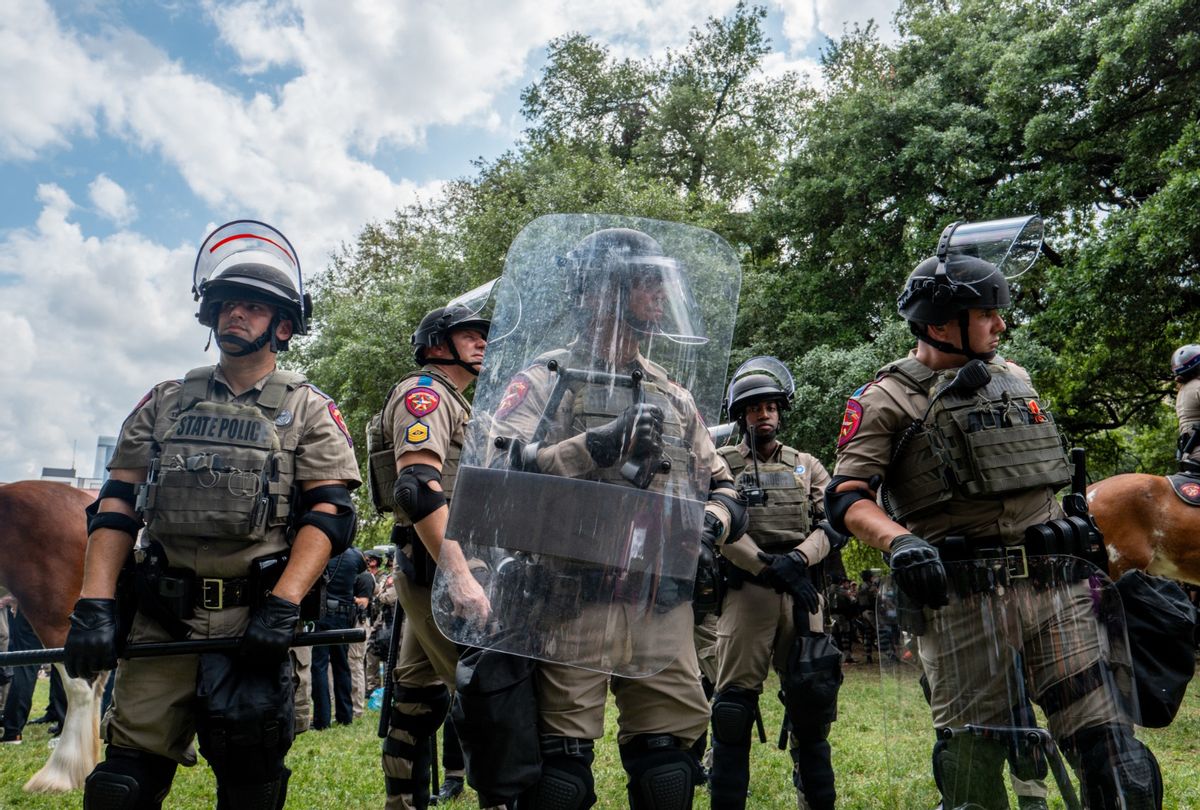A photojournalist who was violently arrested while covering a pro-Palestine student protest at the University of Texas at Austin last week is reportedly being charged with felony assault on an officer, a charge that press freedom advocates condemned as an obvious attempt to intimidate reporters.
Citing court documents, a local NBC affiliate reported Monday that FOX 7 journalist Carlos Sanchez "faces a charge of assault on a peace officer, a second-degree felony."
"The affidavit said Sanchez lunged toward a Texas Highway Patrol officer, who was on campus assisting the university's police department during its response to the protest, striking him with his camera," according to KXAN. Sanchez was initially taken into custody on criminal trespass charges, which were later dropped.
Videos of Sanchez's arrest and the chaotic moments preceding it went viral on social media last week, with the footage showing Texas state troopers hurling the journalist to the ground with his camera after he appeared to collide with the back of an officer as police attempted to move a group of demonstrators.
Sanchez denied intentionally hitting an officer. The Freedom of the Press Foundation (FPF) said in a statement Monday that "contrary to the police affidavit in support of the arrest, video of the incident does not show Sanchez intentionally hitting an officer with his camera, and there is no reason why a FOX 7 journalist, who was there to cover the protests, not participate in them, would strike an officer."
FPF said Texas authorities should drop the assault charge immediately.
Seth Stern, FPF's director of advocacy, said in a statement late Monday that "violently arresting journalists and then charging them with felonies is unacceptable, authoritarian bullying."
"It's doubly bad when police were there to shut down free speech in the first place," said Stern. "Even after law enforcement assaults of journalists covering protests in 2020 resulted in millions in settlement payments, many officers clearly haven't learned their lesson. As even the U.S. Department of Justice has acknowledged, protests are newsworthy, and journalists need to be allowed to cover them and their aftermath, even when protestors are dispersed."
"It's important to keep in mind that none of this would have happened if American universities weren't inviting militarized police forces onto campuses to break up student protests," Stern added. "The police response to the protests—against journalists and students alike—has been far more violent than the protests ever were."
Sanchez's arrest drew swift condemnation from press freedom organizations including the Committee to Protect Journalists, which said last week that it was "very concerned by the violent arrest of a FOX 7 Austin journalist who was simply doing his job and covering matters of public interest."
Ashanti Blaize, president of the Society of Professional Journalists, said the felony charge against Sanchez is "intimidation and retaliation" by Texas authorities, who violently arrested student protesters again on Monday at the University of Texas at Austin campus.
"There will undoubtedly be a chilling effect on journalists who will cover this developing story, not just in Austin, but across TX," Blaize wrote on social media. "The public has a right to know what's happening on the ground, which means journos must be allowed to do their First Amendment-protected jobs without fear of law enforcement interference or threats of arrest and detainment."



Shares